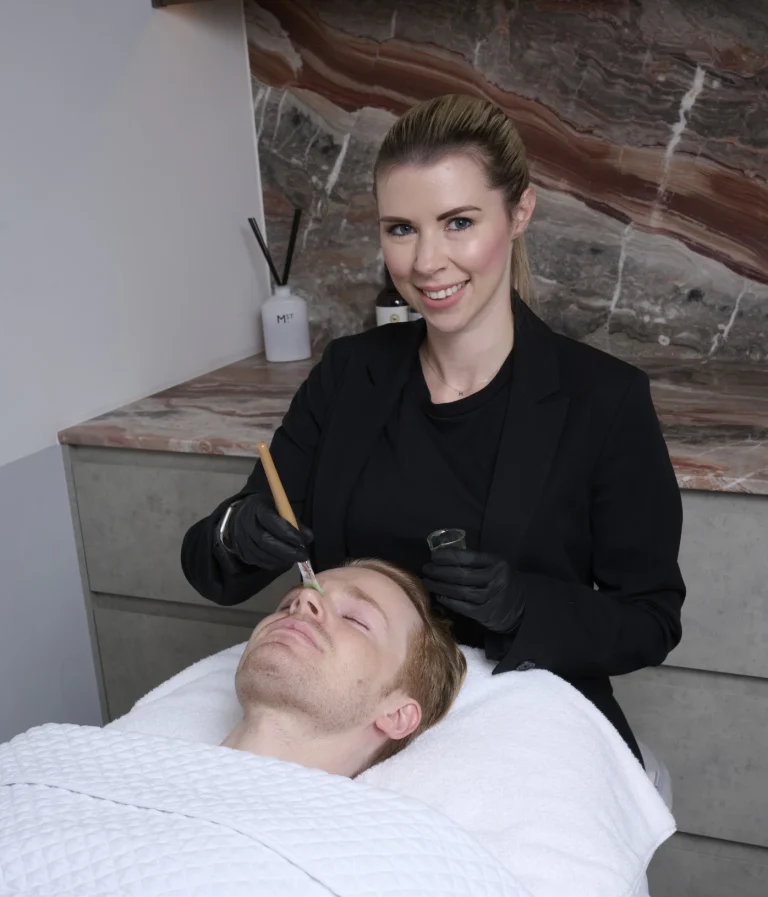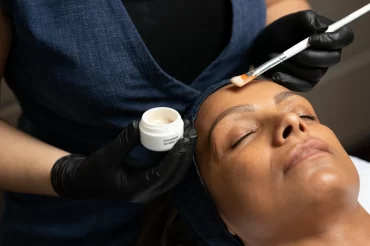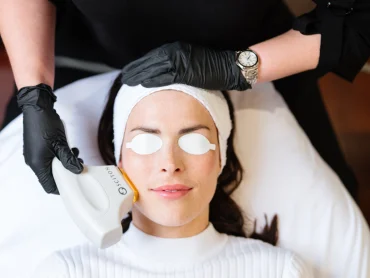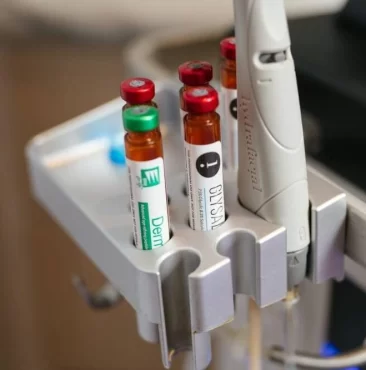Acne and congestion

Acne is a common skin condition that can affect people of all ages, sometimes presenting with congestion, breakouts or inflammation.
Acne is a common skin condition that can affect people of all ages, from teenagers through to adulthood, and even later in life. It can occur in both men and women, and may be influenced by hormonal, genetic, lifestyle and environmental factors.
The visible symptoms of acne vary from person to person, but may include blackheads, whiteheads, pustules, papules, and in some cases cysts. While acne itself is not harmful, it can sometimes leave scars or pigment changes once it resolves, and may also have an impact on self-confidence and wellbeing.
Because acne has many possible contributing causes, management often involves a combination of approaches.
In accordance with Therapeutic Goods Administration (TGA) regulations, we are unable to provide detailed information about specific treatments online. Such information may be misinterpreted as the promotion of prescription-only (Schedule 4) medications – this is not permitted under TGA guidelines.
For this reason, a consultation with one of our practitioners is required. During your comprehensive consultation, your practitioner will carefully assess your skin, discuss your concerns, and provide education around suitable treatment options. A personalised treatment plan will then be created to address your individual needs.
Treatment costs will vary depending on your tailored plan and will be discussed with you in detail during your consultation.
FAQs
What causes acne?
Acne develops when hair follicles and sebaceous glands become blocked with oil (sebum), dead skin cells and bacteria. This process can lead to inflammation and the formation of visible breakouts.
Some common contributing factors may include:
Hormonal changes – androgens can increase oil production, which may trigger breakouts (e.g. in puberty, PCOS, or during menstrual cycles).
Genetics – some people are more prone to developing acne due to inherited skin traits.
Bacteria – the presence of C. acnes bacteria in blocked follicles can promote inflammation.
Lifestyle factors – stress, certain diets (high glycaemic foods, dairy, excess sugar), and sleep patterns may influence acne flare-ups.
Medications – some medicines, such as steroids, anticonvulsants or hormones, may worsen acne.
Products and external factors – oily skincare or cosmetics, heat, friction or trauma to the skin can contribute.
Can acne be prevented?
While acne cannot always be prevented, there are steps that may assist in reducing flare-ups:
Using non-comedogenic (non-pore clogging) skincare and makeup
Avoiding excessive touching or picking at the skin
Maintaining a balanced diet and adequate hydration
Managing stress and sleep
Protecting the skin from excessive sun exposure
Emerging research suggests that diet and lifestyle may play a role in acne for some people. High glycaemic foods, dairy, and excess sugar may trigger inflammation in certain individuals. Stress and lack of sleep may also exacerbate symptoms. However, acne is a complex condition and not solely caused by these factors.
How is acne managed?
Acne usually requires a tailored approach depending on its severity, type, and individual skin characteristics. Management may include:
Topical preparations – skincare with active ingredients such as salicylic acid, glycolic acid, lactic acid, azelaic acid, retinoids, or benzoyl peroxide may be recommended.
Prescription medications – in more severe cases, topical or oral medications may be prescribed by a doctor or dermatologist. These can include antibiotics, retinoids, or hormonal treatments.
Lifestyle adjustments – managing stress, sleep, and diet may help to support skin health.
In-clinic treatments – various treatment options may be considered to support acne management, help regulate oil production, or assist with inflammation and post-acne changes.
What are our recommended treatments?
At Youth Lab, we take an individualised approach. Following a consultation, your practitioner may recommend a combination of in-clinic treatments and home care options as part of a tailored plan.
Some treatments that may be considered include:
- LED therapy (Healite II) – uses specific light wavelengths to help support skin repair and may reduce bacteria that contribute to acne.
- BBL Forever Clear – a light-based treatment that targets redness, bacteria and inflammation.
- Clinical peels – gentle peels using alpha-hydroxy or beta-hydroxy acids can assist with exfoliation, congestion and uneven texture.
- Hydrafacial – combines exfoliation, hydration and extraction to support clearer skin.
- Microneedling / RF microneedling – may be considered for textural concerns or scarring associated with acne.
- Topical or prescription skincare – medical-grade skincare products may be recommended to support your results at home.
Please note:
- Acne is a chronic and multifactorial condition, and results vary between individuals.
- Treatments may help reduce symptoms and improve skin quality, but no single treatment is guaranteed to resolve acne.
- For moderate to severe acne, or when prescription medications may be needed, referral to a GP or dermatologist may be recommended.
- A consultation at Youth Lab is essential before any treatment to assess your skin, review your medical history, and develop a safe and appropriate treatment plan.



